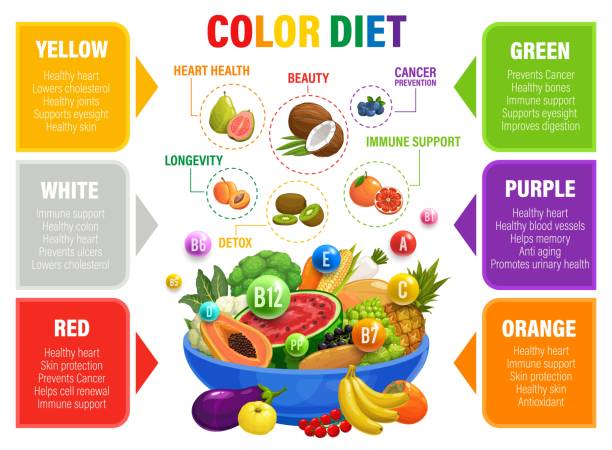Fruits and vegetables are essential for a healthy diet, providing vitamins, minerals, fiber, and antioxidants, which can help reduce the risk of chronic diseases like heart disease, stroke, and certain cancers.

Nutritional Benefits:
- Vitamins and Minerals:Fruits and vegetables are packed with essential vitamins (like A, C, and K) and minerals (like potassium and folate) that are crucial for various bodily functions.
- Fiber:They are an excellent source of dietary fiber, which aids digestion, helps maintain a healthy gut, and can reduce the risk of constipation and other digestive problems.
- Antioxidants:Fruits and vegetables contain antioxidants, which help protect cells from damage caused by free radicals, potentially reducing the risk of chronic diseases.
- Phytochemicals:They also contain phytochemicals, or plant chemicals, that have various health-promoting effects, such as anti-inflammatory and anti-cancer properties.
Health Benefits:
- Reduced Risk of Chronic Diseases:A diet rich in fruits and vegetables can help lower the risk of heart disease, stroke, type 2 diabetes, obesity, and certain cancers.
- Improved Digestion:The fiber content in fruits and vegetables promotes healthy digestion and can help prevent constipation.
- Weight Management:Fruits and vegetables are generally low in calories and fat, making them a good choice for weight management.
- Blood Pressure Control:A diet rich in fruits and vegetables can help lower blood pressure.
- Improved Immune Function:The vitamins and minerals in fruits and vegetables support a healthy immune system.
Examples of Fruits and Vegetables:
- Fruits: Apples, bananas, berries, citrus fruits, grapes, mangoes, oranges, peaches, pears, pineapples, strawberries, etc.
- Vegetables:Asparagus, broccoli, carrots, cauliflower, celery, leafy greens (spinach, kale), lettuce, mushrooms, onions, peas, potatoes, peppers, tomatoes, zucchini, etc.






